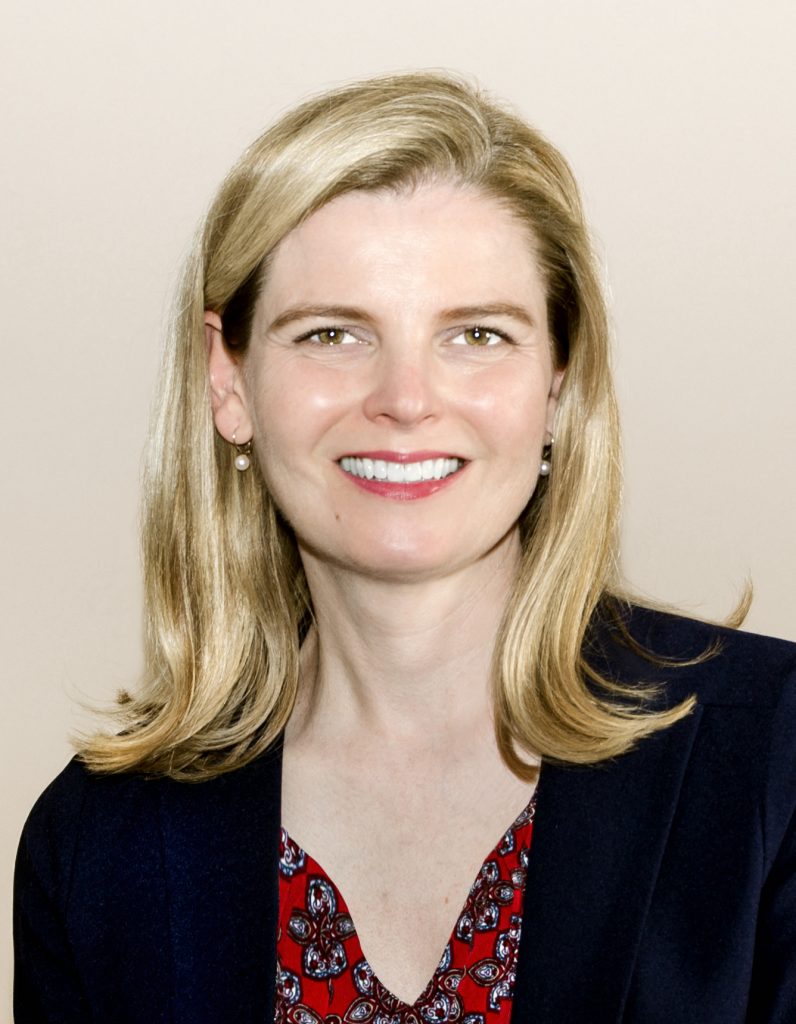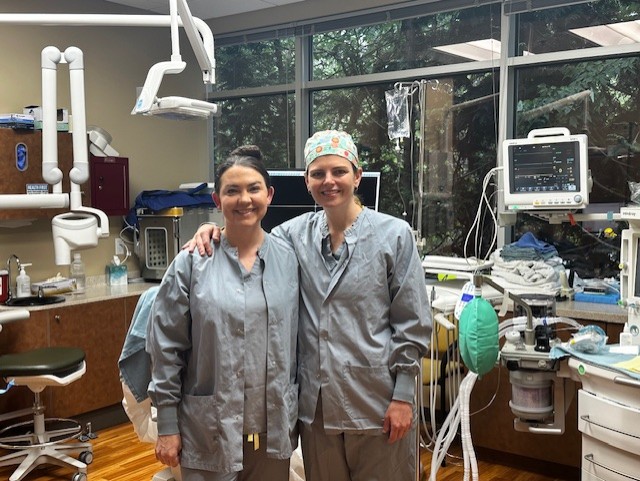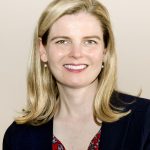Alumni Profile: Dr. Amy Winston, DDS Class of 2002 – A leader in both practicing and teaching compassionate care for special needs dental patients11 min read
This profile is one in an ongoing series highlighting School of Dentistry alumni, donors and students.
________________
The origin story for Seattle Special Care Dentistry sounds like an impossibly complicated idea that could have easily failed, but Dr. Amy Winston’s plan was based on a simple proposition: Everyone in society, no matter their physical, intellectual or medical limitations, deserves excellent dental care.
She believed there was a need in the Seattle area for a dental practice that could treat patients with especially complex cases and a much wider range of health conditions than most offices are prepared to accommodate. Winston knew from experience that it takes specialized training, wide-ranging staff skills and unique office designs to treat patients who, for myriad reasons, aren’t among those who can easily endure 30 minutes or more in a dental chair.
Patients with autism, Alzheimer’s or traumatic brain injuries need special care. Patients with cerebral palsy and Down’s syndrome need special care. People confined to wheelchairs need special care. People with anxiety, a fear of dentists or an inability to get numb need special care. Patients who are immuno-compromised or undergoing cancer treatment need special care.
And the need extends from procedures as seemingly simple as a cleaning by a hygienist to the much more complicated such as oral surgery in an operating room.

Winston had become interested in hospital dentistry and special needs care while a student at the University of Michigan School of Dentistry. After she graduated in 2002, she returned to her native Washington state to complete a two-year General Practice Residency (GPR) at the University of Washington hospital system in Seattle.
“My residency definitely inspired me,” she said. “That is where I saw the difference that I could make as a dentist in treating special needs patients. My GPR program director emphasized that these patients deserve the same high-quality care as anybody else. We want their dentistry to be textbook-worthy, like we would with other patients. And so our goal needs to be how do we deliver outstanding dentistry with these challenges.”
Winston decided it was the type of dentistry she wanted as a career. After completing the GPR, she stayed on as a part-time faculty member in the UW hospital dentistry program while also working part-time at a nearby private practice, from 2004 through 2008. Then a sea change occurred. The hospital-based UW GPR clinic was deemed no longer financially viable and the clinic was moved from the medical center to the dental school. The new environment was far from the hospital setting she had grown to love.
That transition period provided both a need and an opportunity from Winston’s point of view. She and another dentist from the hospital dentistry program decided it was a good time to start a private practice focused on the needs of special care patients. The business partners secured what she calls “a giant loan” and designed both the operational plan and the actual physical space for the practice. For example, they stipulated extra-wide hallways and operatories to accommodate patients in wheelchairs. Designing their surgery suite, they anticipated making room for gurneys since some patients would undoubtedly arrive in ambulances. “We really took the time to thoughtfully design the clinic so that we could accommodate any patient who entered our door,” Winston said.
Seattle Special Care Dentistry opened in 2008 near the UW campus. It has grown steadily and today it is a major player in the Seattle healthcare community with a large staff of dentists and specialists providing general dentistry, oral surgery, endodontics, pediatric dentistry, periodontics and maxillofacial prosthodontics.
That it has become a thriving practice is only half of the story – and half of the original plan. They wanted to start a GPR that would draw recent dental school graduates from around the country for another year of graduate training. Educational accreditation requirements meant such a program needed to be affiliated with a hospital system. They approached Swedish Medical Center, the largest hospital system in the region. Its leaders were initially reluctant about adding a hospital dentistry component since they had existed for more than 100 years without one. Plus, they were concerned with the financial sustainability.
To prove the value of a hospital dentistry program, Winston volunteered her practice to be on call 24-7 for a year – at no charge to the hospital – to respond to the needs of Swedish Medical Center emergency rooms, inpatient wards and specialty services. In the process, they made a strong impression throughout the hospital system as they not only responded to urgent dental needs, but removed some of the bottlenecks in dental clearances for patients needing organ transplants and cardiac surgeries. At the end of that year, many of the hospital’s department chairs provided testimonials in support of establishing a comprehensive hospital dentistry service. Administrators agreed and went “all-in” with their support, including sponsoring a new GPR program. In July 2009, the first cohort of three GPR residents arrived; the program has expanded to now support five residents each year. Winston was named Chair of the Hospital Dentistry Division, a position she still holds.
The success of the practice, hospital dentistry department and GPR program validated the demand for special needs care in the region and led to even more programs that Winston and Seattle Special Care Dentistry have helped initiate. They started an extraction clinic for adult Medicaid and uninsured patients onsite at Swedish’s First Hill Campus. They also helped start two more GPR programs, in Spokane and in Olympia, to spread the model of care to other areas of the state that were under-resourced for patients with special needs. Along the way, Winston earned an MBA in 2018 to bolster her credentials for building the programs at other hospitals.
Now that the Swedish Medical hospital dentistry department is a stable, well-established service, Winston can focus mostly on treating patients at her clinic and teaching residents, both of which give her immense satisfaction. Ultimately, it’s all about the patients and how she and her staff use their experience, training and collaboration to successfully treat people of all conditions. Many special needs patients have tried previously to navigate dental care but had unsuccessful or sometimes traumatic encounters that have prevented follow-up attempts for many years.
Historically, many special needs patients were managed with physical restraint because they were restless or combative, or weren’t able to control their muscle movements. “Occasionally, we may utilize a papoose wrap to stabilize their arms and legs in order to prevent injury, but we generally avoid physical restraint, as it can be traumatizing to the patient,” Winston said. “We use a lot of pharmacological restraint, such as oral sedatives with nitrous oxide, or perform the care under IV sedation, in-office general anesthesia, or in a Swedish operating room. We have many tools in our toolbox and we can tailor our approach to each patient’s unique situation.”
The goal is to find the best way to treat each patient, not only for the immediate dental need, but also to develop a relationship so that the patient is comfortable returning to the practice for their future dentistry needs.
The continual learning and problem-solving are professionally gratifying, Winston said. “We see patients with a variety of common medical and behavioral issues. But we also get to see people with rare medical conditions. For me, there is a huge learning aspect with each patient. The relationship with the hospital is crucial because we have access to all the medical services. If patients present with conditions that are new to me, I have the resources within the Swedish system to ensure that I am treating them safely. I appreciate the integrative approach that comes with functioning within a larger healthcare system.”
Winston first experienced that benefit of hospital dentistry during her four years at the U-M dental school. She credits faculty member Dr. Samuel Zwetchkenbaum, who was program director of the GPR in Hospital Dentistry during her time at the school. “He’s the person who introduced me to hospital dentistry, then inspired me to do a GPR program,” she said. “He opened a door that I had never seen before, so I give a lot of credit for that initial spark.”
Other U-M faculty provided great role models for her eventual role as an educator in the Swedish Medical Center GPR program. They were generous with their time, feedback and encouragement, which bolstered her confidence. In particular, she remembers pre-clinical instructors Drs. Ken Stoffers and Merle Jaarda as great teachers dedicated to developing the students’ clinical skills. “They had high standards,” she said. “You knew when you did well that you really did well. There was this sense that they were focused on our development as clinicians and as healthcare providers. It felt like there was an investment in our success.”
Winston enjoys her ties to U-M. One of her DDS 2002 classmates, Dr. Libby Kutcipal, was a co-resident at the UW GPR program and is now an oral surgeon in Seattle. Then there are the U-M dental grads who have been residents in the Swedish Medical GPR program. Winston says she’s been impressed with the talent and professionalism she’s seen in these residents. That includes Dr. Lauren Vainio, who graduated from the U-M dental school in 2011, excelled as a Swedish GPR resident and is now one of the attending dentists on the Seattle Special Care Dentistry staff. Vainio also serves as the clinic director of the Swedish extraction clinic. Winston cites Vainio as an important contributor to the program’s continued success.

Another alumnus of the Swedish residency, Dr. Riley Schaff, a 2017 U-M dental grad, said it was excellent additional preparation for his current work at practices in Ann Arbor and Jackson, Michigan, and as an Adjunct Clinical Assistant Professor at U-M. “Amy was a great mentor during my time at Swedish Medical Center,” Schaff said. “She has helped to craft a really phenomenal post-graduate program with diverse clinical experiences. Swedish definitely helped me to prepare well for clinical practice after graduating, and I feel as though I was head-and-shoulders above classmates who had gone through other GPR programs.”
Endorsements like that are meaningful for Winston, who says she never expected her career would have so many facets affecting so many people. “I didn’t imagine that it would grow to be what it is. But we evolved over time based on the needs of the patients in our local community.”
And that community covers a lot of territory today. Patients come from all around the Pacific Northwest, Canada and Alaska. Patients travel internationally, too, with some coming all the way from the United Kingdom, Thailand and Portugal. Many of her patients have been with her since the clinic first opened in 2008, some even from her UW days.
It’s always been about one patient at a time.
“The big win – the selfish reason why I do this type of dentistry – is that I get to see patients transformed,” Winston said. “Whether it is an autistic patient who now can sit through a hygiene appointment, or patients with dental fear who have had traumatic dental experiences, often when they were kids. There are some who are at first too scared to walk into my office. I get to see them become more and more comfortable and build relationships with our dentists and hygienists. They become a totally different patient at the end and I am incredibly proud of how far those people have come.
“And sometimes patients don’t have the cognitive and intellectual capacity to understand what is going on, but their families and caregivers do. And when they see how their loved one is treated, you see the transformation in the families, too.
“Those are the wins – when I can say, wow, I was able to facilitate this person’s development as a dental patient and how they view their own oral care.”
###
The University of Michigan School of Dentistry is one of the nation’s leading dental schools engaged in oral healthcare education, research, patient care and community service. General dental care clinics and specialty clinics providing advanced treatment enable the school to offer dental services and programs to patients throughout Michigan. Classroom and clinic instruction prepare future dentists, dental specialists and dental hygienists for practice in private offices, hospitals, academia and public agencies. Research seeks to discover and apply new knowledge that can help patients worldwide. For more information about the School of Dentistry, visit us on the Web at: www.dent.umich.edu. Contact: Lynn Monson, associate director of communications, at [email protected], or (734) 615-1971.

